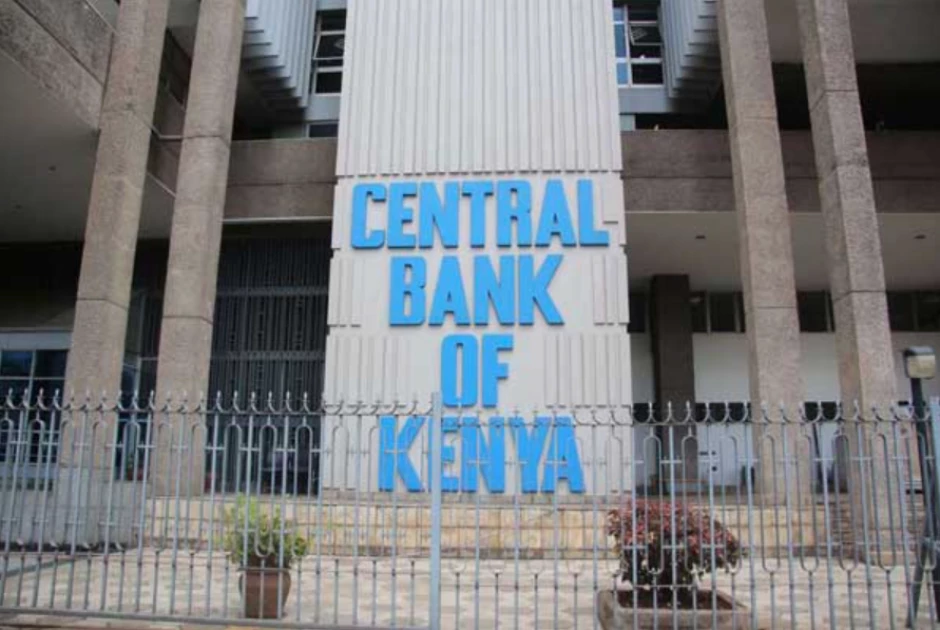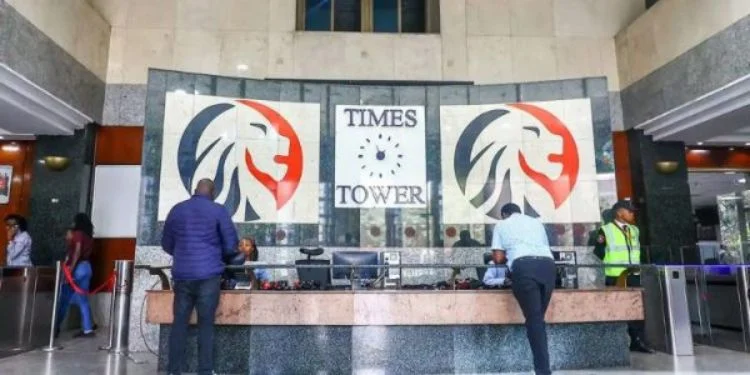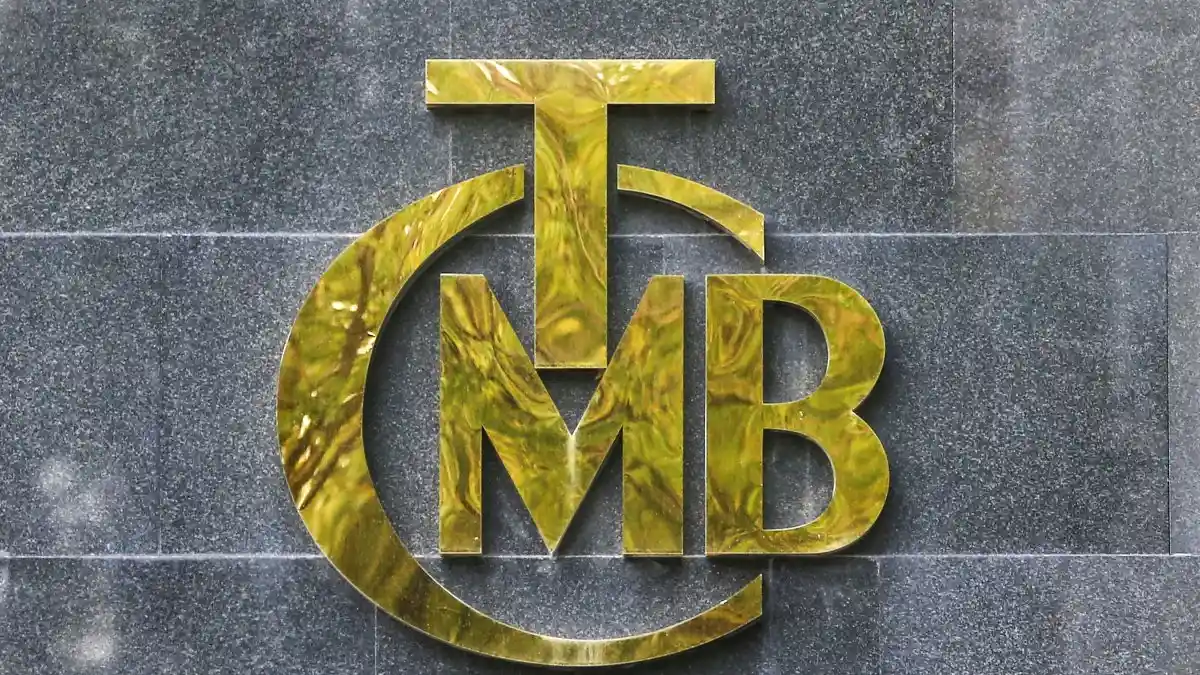The Central Bank of Kenya (CBK) has taken a significant step toward democratizing access to government securities by introducing a groundbreaking feature on its DhowCSD platform that allows retail investors to pay for their successful bids on Treasury bills and bonds using mobile money. This innovative integration of mobile payment technology with formal investment infrastructure represents a watershed moment in Kenya’s financial inclusion journey and could fundamentally transform how ordinary Kenyans participate in government securities markets.
In a major update announced on Friday, November 21, 2025, CBK revealed that investors can now make payments of up to Ksh250,000 through the M-Pesa mobile payment platform, eliminating the need for bank transfers or physical visits to financial institutions to complete investment transactions. The payment process is seamlessly accessed under the “Transactions” tab within the DhowCSD mobile application or through the online portal, providing investors with multiple convenient channels for settling their successful bids.
Build the future you deserve. Get started with our top-tier Online courses: ACCA, HESI A2, ATI TEAS 7, HESI EXIT, NCLEX-RN, NCLEX-PN, and Financial Literacy. Let Serrari Ed guide your path to success. Enroll today.
CBK Governor Dr. Kamau Thugge has championed the digital transformation of government securities investment, recognizing that traditional barriers to entry—including complex processes, lengthy paperwork, and the requirement for physical presence at financial institutions—have historically excluded millions of Kenyans from participating in what are among the safest and most reliable investment opportunities available in the country.
M-Pesa Integration: Breaking Down Payment Barriers
The integration of M-Pesa, Kenya’s dominant mobile money platform with over 30 million active users, into the government securities payment ecosystem addresses one of the most significant friction points that have limited retail investor participation. Previously, investors who successfully bid for Treasury bills or bonds had to arrange bank transfers to complete their purchases, a process that could be cumbersome, time-consuming, and sometimes intimidating for first-time investors unfamiliar with banking procedures.
With the new M-Pesa payment option, investors can complete transactions directly from their mobile phones within minutes, using the same platform they employ for everyday transactions like paying bills, sending money to family, or purchasing goods and services. This familiarity and convenience dramatically lowers the psychological and practical barriers to investing in government securities.
The Ksh250,000 payment limit is strategically calibrated to serve retail investors while managing transaction risks and regulatory requirements. This amount is sufficient for most individual investors making their initial forays into government securities markets, where minimum investment amounts for Treasury bills typically start at Ksh50,000 or Ksh100,000 depending on the specific instrument. The limit allows investors to purchase multiple Treasury bill units or smaller bond allocations without requiring alternative payment arrangements.
CBK has indicated that while M-Pesa is currently the only mobile payment platform integrated with DhowCSD, additional mobile payment options will be introduced in the future. This expansion will likely include other mobile money services such as Airtel Money and T-Kash, ensuring that the payment infrastructure is accessible to all Kenyans regardless of which mobile network operator they use. The phased approach allows CBK to test and refine the integration process with one platform before scaling to others.
DhowCSD: Kenya’s Gateway to Government Securities
The new M-Pesa payment feature represents an evolution of the broader DhowCSD system, which was launched in 2023 as part of CBK’s ambitious digital transformation agenda. DhowCSD—named after the traditional sailing vessels that have plied East African waters for centuries, symbolizing trade, connection, and prosperity—is a comprehensive digital platform that enables retail investors in Kenya and abroad to buy and manage government securities without requiring the intermediation of commercial banks or investment advisors.
Prior to DhowCSD’s introduction, participating in Treasury bill and bond auctions was primarily the domain of institutional investors, high-net-worth individuals, and those with strong relationships with commercial banks that could facilitate investments on their behalf. The minimum investment amounts, combined with the complexity of the bidding and settlement processes, effectively excluded ordinary Kenyans from directly accessing these investment opportunities.
Through the DhowCSD system, investors can now participate in Treasury bill and Treasury bond auctions directly, viewing detailed information about upcoming auctions including maturity dates, expected yields, and minimum investment amounts. The platform provides real-time auction results, allowing investors to immediately know whether their bids were successful and at what yield. Users can check payment instructions for successful bids, ensuring they understand exactly how much they need to pay and when payment is due.
The platform also enables investors to monitor upcoming corporate actions such as bond redemptions, coupon payments, and rollovers, ensuring they stay informed about events affecting their investments. Comprehensive portfolio statements are available through the system, giving investors a complete view of their government securities holdings, including purchase dates, maturity dates, interest rates, and the total value of their portfolio.
Additionally, DhowCSD provides tools for placing secondary market instructions, allowing investors to sell their Treasury bills or bonds before maturity if they need liquidity. The platform also supports pledge instructions, enabling investors to use their government securities as collateral for loans while retaining ownership until maturity.
Registration Requirements: Simplified Yet Secure
To use DhowCSD services and take advantage of the new M-Pesa payment feature, individuals must first register for a DhowCSD account. CBK has designed the registration process to balance accessibility with the security and regulatory compliance requirements necessary for financial transactions of this nature.
Registration requires several basic elements that most Kenyan adults already possess. First, applicants need a valid email address, which serves as the primary communication channel for account updates, auction results, and important notifications. Second, they need access to a mobile phone or computer with internet connectivity to use the platform’s mobile application or web portal.
Third, applicants must have an active, registered mobile number with a Kenyan Mobile Network Operator. This requirement ensures that CBK can reach account holders through SMS notifications and that the mobile number is properly registered in accordance with Kenya’s communications regulations, which helps prevent fraud and ensures traceability of transactions.
Fourth, applicants must provide their Kenya Revenue Authority (KRA) PIN, the unique taxpayer identification number assigned to all taxpayers in Kenya. This requirement serves multiple purposes: it enables CBK to report investment income for tax purposes, ensures compliance with tax regulations, and helps prevent money laundering by verifying the identity of investors.
Fifth, applicants must provide settlement bank details—specifically, the bank account into which coupon payments, principal repayments, and proceeds from secondary market sales will be deposited. This ensures that investors can receive the financial returns from their investments without complications.
Finally, applicants must submit copies of required documents including a clear passport-size photograph and an identification document such as a national ID card, passport, or alien card for non-citizens. These documents enable CBK to verify the identity of applicants and comply with Know Your Customer (KYC) regulations that govern financial institutions.
In certain circumstances, applicants may also include a tax exemption certificate if they qualify for exemptions under Kenyan tax law. For example, certain categories of bonds such as infrastructure bonds offer tax-exempt returns, and investors may need to document their eligibility for these tax benefits.
CBK has established a seven-day window for completing the registration process once begun. If an applicant starts registration but does not complete it within this timeframe, the system automatically deletes the incomplete profile, ensuring that the database remains clean and that abandoned registrations do not create security vulnerabilities or clutter the system.
Once the registration is complete and approved—a process that typically takes two to three days as CBK verifies submitted documents and information—the user receives an email containing their assigned username. This username, along with the registered email address, can be used for all future logins to the DhowCSD platform, whether through the mobile application or the web portal.
Joint Accounts: Facilitating Shared Investment
Recognizing that many Kenyans prefer to invest jointly with spouses, family members, or business partners, DhowCSD supports the creation of joint accounts. However, joint accounts can only be established after each participant has created and activated an individual profile on the platform. This requirement ensures that all parties to the joint account are properly identified and verified before they can operate a shared investment account.
Joint accounts offer several advantages for investors. They allow couples to build shared savings and investment portfolios, facilitate family wealth accumulation across generations, enable business partners to invest jointly while maintaining clear documentation of ownership, and can provide continuity in the event that one account holder passes away or becomes incapacitated, as the other account holders can continue accessing and managing the investments.
Any requests to change critical account information such as email addresses or settlement bank details must be submitted directly to CBK for processing rather than being changed independently by users. This security measure prevents unauthorized modifications to accounts and ensures that changes to sensitive information are properly documented and verified.
One decision can change your entire career. Take that step with our Online courses in ACCA, HESI A2, ATI TEAS 7, HESI EXIT, NCLEX-RN, NCLEX-PN, and Financial Literacy. Join Serrari Ed and start building your brighter future today.
The Investment Process: From Bid to Payment
After registration approval, which typically takes two to three days as CBK’s systems verify submitted information and documents, investors can log in to the DhowCSD portal or mobile application to begin investing. The DhowCSD application is available on both the Google Play Store for Android devices and the Apple App Store for iOS devices, ensuring broad accessibility across the smartphone ecosystem that has become nearly ubiquitous in Kenya.
Upon logging in, investors can view all available Treasury bills and bonds currently being auctioned by the government. The platform provides detailed information about each security, including the instrument type (Treasury bill or bond), the maturity date (when the government will repay the principal), the minimum investment amount, and indicative yields based on recent auction results.
Investors place bids using the BUY/SELL option on the platform, which guides them through the bidding process with clear instructions and explanations. The platform supports two types of bidding: competitive and non-competitive.
In competitive bidding, investors specify both the amount they wish to invest and the yield (interest rate) they are willing to accept. This approach is typically used by more sophisticated investors who have views on appropriate yields based on market conditions. Competitive bids may not be filled if the investor’s specified yield is below what the government is willing to pay, as CBK accepts bids starting with those demanding the lowest yields (most favorable to the government) until the auction target amount is reached.
In non-competitive bidding, investors specify only the amount they wish to invest and agree to accept whatever yield the auction determines. This approach guarantees that the bid will be filled (up to specified limits on non-competitive bids), making it ideal for retail investors who prioritize investment certainty over yield optimization. Non-competitive bidders receive the weighted average yield of accepted competitive bids, ensuring they get market rates without needing to forecast yield movements.
Following a successful bid—confirmed through email and SMS notifications as well as being visible in the DhowCSD platform—investors must pay for their allocation within the specified settlement period, typically within one or two business days. This is where the new M-Pesa payment feature becomes transformative.
Previously, investors had to initiate bank transfers to specific CBK accounts, a process requiring them to log into internet banking, visit bank branches, or use other banking channels. For investors without strong banking relationships or familiarity with bank transfer procedures, this step could be intimidating and time-consuming.
Now, investors can simply select the M-Pesa payment option within DhowCSD, which generates a payment prompt on their mobile phone. They enter their M-Pesa PIN to authorize the transaction, and the payment is completed within seconds. The DhowCSD system automatically receives confirmation of the payment, updating the investor’s account status and ensuring that their security allocation is properly recorded.
This seamless payment process means that an investor can complete an entire investment transaction—from viewing available securities, to placing a bid, to paying for a successful allocation—entirely through their mobile phone without ever visiting a bank, speaking to an investment advisor, or completing paper forms. This level of convenience and accessibility represents a quantum leap in financial inclusion and investment democratization.
Types of Government Securities Available
CBK DhowCSD offers access to various Treasury bond types for investment, each designed to serve specific government financing needs and investor preferences. Understanding these different instruments helps investors make informed decisions about which securities best match their investment objectives, risk tolerance, and time horizons.
Fixed-Coupon Bonds are the most common type of Treasury bonds available through the platform. These bonds feature a stable interest rate that remains constant throughout the bond’s lifespan, resulting in consistent semi-annual interest payments that investors can rely upon for income. The predictability of fixed-coupon bonds makes them attractive to investors seeking stable, reliable returns without exposure to interest rate volatility. These bonds are issued in various maturities, typically ranging from two years to thirty years, allowing investors to choose time horizons that match their financial goals.
Infrastructure Bonds are fixed-coupon bonds specifically designated to fund particular infrastructure projects such as roads, railways, energy facilities, or other capital-intensive developments. These bonds often attract significant market interest due to their tax-exempt returns—interest earned on infrastructure bonds is generally not subject to income tax, enhancing their after-tax returns relative to regular bonds with similar yields. The tax exemption makes infrastructure bonds particularly attractive to higher-income investors in elevated tax brackets. However, the funds raised through infrastructure bonds must be deployed specifically to the projects for which they were designated, creating accountability for how the borrowed funds are used.
Savings Development Bonds are long-dated, fixed-coupon bonds specifically designed to encourage long-term savings among investors. These instruments typically feature longer maturities and may offer slightly higher yields than comparable standard bonds as an incentive for investors to commit their capital for extended periods. Savings development bonds serve the dual purpose of providing the government with long-term financing while helping individual investors accumulate wealth over time, potentially supporting retirement planning or other long-term financial goals.
Treasury bills, while technically different from bonds, are also available through DhowCSD. Treasury bills are short-term government securities with maturities of 91 days, 182 days, or 364 days. Unlike bonds that pay periodic interest, Treasury bills are issued at a discount to their face value and mature at par, with the difference between the purchase price and maturity value representing the investor’s return. Treasury bills offer liquidity and flexibility for investors who want to keep their capital accessible while earning returns higher than typical savings accounts.
Broader Implications: Financial Inclusion and Capital Markets Development
The integration of M-Pesa payments into DhowCSD has implications far beyond the immediate convenience it offers to individual investors. This development represents a significant milestone in Kenya’s financial inclusion journey and could catalyze broader participation in capital markets by previously excluded populations.
Kenya has been a global leader in mobile money adoption, with M-Pesa pioneering the mobile money revolution that has since spread across Africa and to other developing regions. However, mobile money has primarily been used for payments, remittances, and basic savings rather than for formal investments. By linking mobile money to government securities investment, CBK is helping to evolve mobile money from a payment and transaction platform into a wealth-building tool.
This evolution could have several important effects. First, it may shift household savings from informal mechanisms like keeping cash at home or lending to neighbors toward formal financial instruments that offer guaranteed returns and security. Second, it could increase the depth and liquidity of Kenya’s government securities market by expanding the investor base beyond institutional investors and wealthy individuals. Third, it may enhance financial literacy as more Kenyans engage directly with investment concepts like yields, maturities, and portfolio management.
Fourth, the success of M-Pesa integration with government securities could pave the way for similar integration with other investment products such as corporate bonds, equities, or money market funds, further expanding investment options for ordinary Kenyans. Fifth, by reducing the government’s reliance on a small number of large institutional investors, broader retail participation could strengthen the domestic investor base and reduce vulnerability to foreign investor outflows during periods of global market stress.
Challenges and Considerations
While the M-Pesa payment integration represents significant progress, several challenges and considerations remain. First, the Ksh250,000 payment limit, while suitable for many retail investors, may be restrictive for those seeking to make larger investments. CBK will need to consider whether to raise this limit over time or offer alternative payment channels for larger transactions.
Second, successful adoption will require sustained investor education to ensure that ordinary Kenyans understand how to use the platform, the risks and returns associated with different government securities, and how these investments fit into broader financial planning. CBK and partners will need to invest in financial literacy programs delivered through community channels, media, and digital platforms.
Third, the security of the payment system must be continuously monitored and enhanced to protect investors from fraud, hacking, or system failures. As more money flows through the M-Pesa-DhowCSD integration, it may become an attractive target for cybercriminals, requiring robust security measures and investor protection mechanisms.
Fourth, technical reliability is crucial—system downtime or payment processing failures during auction settlement windows could cause investors to miss investment opportunities or face penalties, potentially eroding confidence in the platform. CBK must invest in reliable technology infrastructure and contingency systems.
Finally, the government must maintain disciplined fiscal management to ensure that increased retail participation in government securities markets does not enable excessive borrowing or create situations where ordinary citizens bear disproportionate risks from government fiscal challenges.
Looking Ahead: The Future of Retail Investment in Kenya
The launch of M-Pesa payments for government securities through DhowCSD represents just one chapter in the ongoing evolution of Kenya’s financial markets. CBK Governor Dr. Kamau Thugge has signaled that additional innovations are in development, potentially including integration with other mobile money platforms, expansion of available investment products, enhanced portfolio management tools, and improved secondary market functionality.
As more Kenyans gain experience investing in government securities through DhowCSD, they may develop greater confidence and sophistication that enables them to explore other investment opportunities. This could gradually build a culture of investment and long-term financial planning that currently remains underdeveloped outside of urban middle-class communities.
The success of DhowCSD and its M-Pesa integration could also inspire similar innovations in neighboring East African countries, potentially contributing to regional financial integration and the development of more sophisticated, accessible capital markets across the region.
For ordinary Kenyans, the message is clear: investing in government securities is no longer reserved for the wealthy or financially sophisticated. With a smartphone, an M-Pesa account, and as little as Ksh50,000 to invest, anyone can become a government securities investor, earning guaranteed returns while supporting national development. This democratization of investment represents a powerful tool for building household wealth, securing financial futures, and fostering broader economic inclusion in Kenya.
Ready to take your career to the next level? Join our Online courses: ACCA, HESI A2, ATI TEAS 7 , HESI EXIT , NCLEX – RN and NCLEX – PN, Financial Literacy!🌟 Dive into a world of opportunities and empower yourself for success. Explore more at Serrari Ed and start your exciting journey today! ✨
Track GDP, Inflation and Central Bank rates for top African markets with Serrari’s comparator tool.
See today’s Treasury bonds and Money market funds movement across financial service providers in Kenya, using Serrari’s comparator tools.
Photo source: Google
By: Montel Kamau
Serrari Financial Analyst
25th November, 2025
Article, Financial and News Disclaimer
The Value of a Financial Advisor
While this article offers valuable insights, it is essential to recognize that personal finance can be highly complex and unique to each individual. A financial advisor provides professional expertise and personalized guidance to help you make well-informed decisions tailored to your specific circumstances and goals.
Beyond offering knowledge, a financial advisor serves as a trusted partner to help you stay disciplined, avoid common pitfalls, and remain focused on your long-term objectives. Their perspective and experience can complement your own efforts, enhancing your financial well-being and ensuring a more confident approach to managing your finances.
Disclaimer: This article is for informational purposes only and does not constitute financial advice. Readers are encouraged to consult a licensed financial advisor to obtain guidance specific to their financial situation.
Article and News Disclaimer
The information provided on www.serrarigroup.com is for general informational purposes only. While we strive to keep the information up to date and accurate, we make no representations or warranties of any kind, express or implied, about the completeness, accuracy, reliability, suitability, or availability with respect to the website or the information, products, services, or related graphics contained on the website for any purpose. Any reliance you place on such information is therefore strictly at your own risk.
www.serrarigroup.com is not responsible for any errors or omissions, or for the results obtained from the use of this information. All information on the website is provided on an as-is basis, with no guarantee of completeness, accuracy, timeliness, or of the results obtained from the use of this information, and without warranty of any kind, express or implied, including but not limited to warranties of performance, merchantability, and fitness for a particular purpose.
In no event will www.serrarigroup.com be liable to you or anyone else for any decision made or action taken in reliance on the information provided on the website or for any consequential, special, or similar damages, even if advised of the possibility of such damages.
The articles, news, and information presented on www.serrarigroup.com reflect the opinions of the respective authors and contributors and do not necessarily represent the views of the website or its management. Any views or opinions expressed are solely those of the individual authors and do not represent the website's views or opinions as a whole.
The content on www.serrarigroup.com may include links to external websites, which are provided for convenience and informational purposes only. We have no control over the nature, content, and availability of those sites. The inclusion of any links does not necessarily imply a recommendation or endorsement of the views expressed within them.
Every effort is made to keep the website up and running smoothly. However, www.serrarigroup.com takes no responsibility for, and will not be liable for, the website being temporarily unavailable due to technical issues beyond our control.
Please note that laws, regulations, and information can change rapidly, and we advise you to conduct further research and seek professional advice when necessary.
By using www.serrarigroup.com, you agree to this disclaimer and its terms. If you do not agree with this disclaimer, please do not use the website.
www.serrarigroup.com, reserves the right to update, modify, or remove any part of this disclaimer without prior notice. It is your responsibility to review this disclaimer periodically for changes.
Serrari Group 2025
















